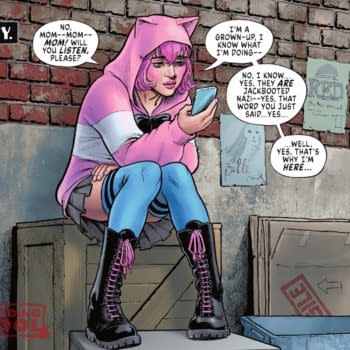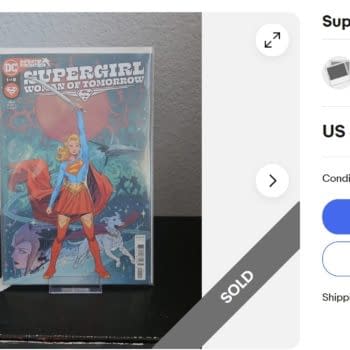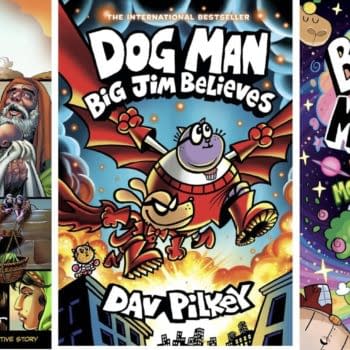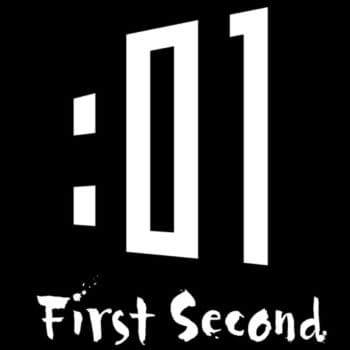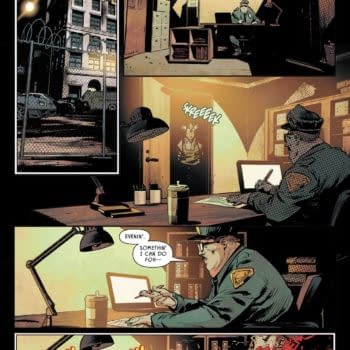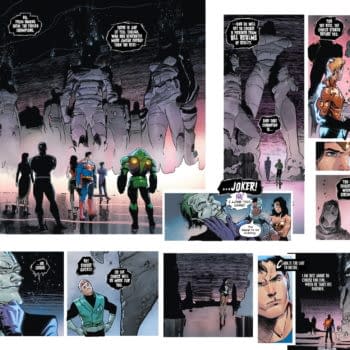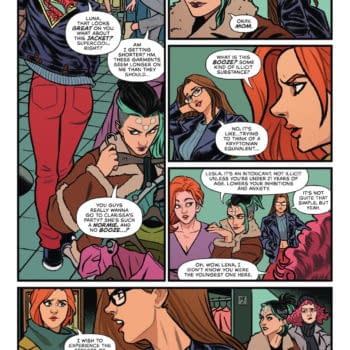Posted in: Comics | Tagged: 2012, aspen, comic con, Comics, san diego, sdcc
Michael Uslan, By Way Of Aspen Comics
Steve Robles reported for Bleeding Cool from San Diego Comic Con
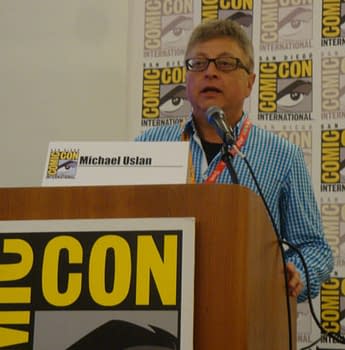
The common thread seems to be a line lifted from genre opus "The Rocky Horror Picture Show": Dream It. Be It. Whatever one can imagine in their head or on the page can be realized. I walked the floor of the exhibit hall and saw giants and Hobbits. I saw weaponry that had only existed in a video game come walking right past me cold and heavy. I saw Loki giving Iron Man a soft drink through a hole in his mask.
On Friday, I attended a panel for a man named Michael Uslan. I have to admit I did not know the man's reputation by name.
In order to make sure I made his panel, I sat through the panel prior. Aspen Comics was presenting information on its plans for the tenth anniversary of the brand. Ten years in the modern comics world is a surprising feat. It requires timing and careful promotion and utilization of talent.
Aspen plans some pretty aggressive things: a slew of new titles and revamps of others. They even tout a soon-to-be-released line of jewelry, skate board decks and more branded items. They operate like there's no recession and the room is full of adoring fans who cheer each development as it's announced.
The panel ends and Aspen booth babes hand out Con-exclusive issues of various Aspen offerings. I score a copy of Soulfire.
Most of the room empties and I take a place in the front row. Not many more bodies are added to the total for Uslan's panel. I jadedly affirm to myself that this panel was marked to be lightly attended, who the hell knows who Michael Uslan is?
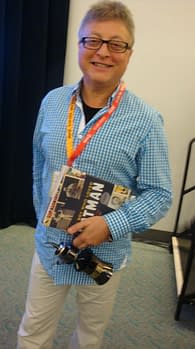
His passion for comics grew as he did and at the point of entering college, he had amassed over 30,000 comic books. His collection kept his parents from storing their car in the garage. His passion kept him from finding dates.
Holding on to his passions and fueled with frustration over the ignorant attitude others had for the art of comics, he petitioned the board of Deans at Iowa State for a class devoted to the study of the comic book art form.
Comics, Uslan argued to the Board, were the modern versions of Greek, Roman and Norse mythology. Their stories of Kirby, Kane and Lee were the stories of our own desire to control the unknown. They were our mythology.
Not surprisingly, the Board just about laughed him out of the room. He paused for a second and begged one more shot at convincing them.
"I asked the Dean if he knew the Biblical story of Moses," Uslan recalled.
The Dean of course knew the story and when asked to recount it, he related the details of how Moses was saved from the destruction of his people by his parents who placed him in a wicker basket and sent him down a river where he ended up being found by kindly Egyptians who adopted him as his son and he grew into a hero and eventually freed the Hebrews from slavery.
"I then asked the Dean if he knew the story of Superman", Uslan impishly said.
The Dean said he did and, when asked, recounted that story: Superman is sent as an infant from his world by his parents to avoid the destruction of his people. He travels through space to Earth where he is found by a kindly couple who adopt him as their son…
"He stopped there and said, 'you can have your course.'"
Uslan then drummed up some publicity for his new course and soon the academic world was buzzing about the upstart who was teaching a class on funny books at a State College. The news soon spread to the mainstream press and Uslan one day found himself on the other end of a phone call from Stan Lee himself.
Lee offered Uslan his assistance in whatever he might need. Uslan was flattered but the call he really wanted was soon to come: The head of DC Comics called and offered him a job working summers in the office. It was his welcome into the home of his beloved Batman.
After impressing Denny O'Neil and Julius Schwartz with his scripts for "The Shadow", he was given the task of writing Batman scripts and his dream moved forward.
Failing to get his foot in the door with the studios, Uslan became a lawyer and worked on some major films in the 70s and 80s, including "Apocalypse Now", "Raging Bull" and more. Giving himself a time limit of four years and soon finding himself near the end of it, he made a move on his fantasy.
With a team of investors, he bought the rights to Batman from DC with their good riddance and warnings that he was making a bad decision trying to resurrect a property that was DOA after the end of the TV series.
Ignoring naysayers, Uslan spent the next ten years trying to sell the idea of a serious, dark Batman movie to studios who would turn him down based, in one instance, on the failure of the fluff movie-musical "Annie".
It was a meeting with maverick director Tim Burton that finally put Uslan on the final track to realizing his ultimate goal. Together with designer Anton Furst, Burton created a Gotham City that satisfied Uslan's darker vision. Uslan himself chose Jack Nicholson to play The Joker and managed to get the actor to agree.
Given Nicholson's intensity, Uslan's desire to cast an unknown in the role of Bruce Wayne was dashed. Any untested actor, he felt, would be overshadowed by Nicholson and that would preclude any gravitas that would prove essential in selling a darker Batman to an audience weaned on pot-bellied Adam West and the campy TV version.
When Burton suggested comedic actor Michael Keaton, Uslan had some obvious reservations. He said he was proven wrong on the first day of shooting.
"This was a man who would dress up like a bat and go fight bad guys," Uslan remembered.
Moving on to the more recent, Christopher Nolan-directed movies, he coyly avoids the later, more flamboyant Batman movies dismissing them as guided more by selling toys than telling a Batman story.
Now with the Dark Knight Returns set to open (Uslan said he 'cried' at a screening), Uslan isn't looking to what the future holds – yet.
"We aren't looking past July 20th, " he says when asked about a possible Batman re-boot dovetailing into a Justice League movie.
Uslan was also presented with "The Inkpot" award for excellence in film by Comic-Con. In my estimation, the medium of comics owes a huge debt of gratitude to Michael Uslan.
I doubt that any of the hypists in the Aspen panel even knew his panel was next or even who he is. If they had, they would have insisted that the crowd that sat through a panel full of bikini babes in armor and more endless trinket-building and brand-selling would sit through the next one.
Uslan's and Burton's "Batman" probably saved the comics industry from implosion in the early 90s. Aspen should have made those people stay and pack the room for that man. It's the least they could have done.
Uslan tells his story in his book "The Boy Who Loved Batman".






